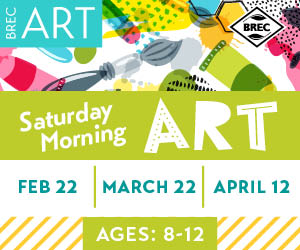Like many red-blooded Americans, I used to tune in to “American Idol,” but I always quit watching once they selected their final batch of contestants. For me, the audition process was more entertaining. Simon always had genuine consternation at some of the contestants’ outright boldness in auditioning. He would watch them, mouth open, as they belted out wrong notes with the confidence of Miss America. He would even go so far as to ask them who told them that they could sing. Part of me felt second-hand embarrassment for them, while the other part was satisfied that he, in person, was doing what I was doing from my couch. I honestly could never understand how unaware of themselves these people really could be.

And then I became a public school teacher, and the curtain was lifted.
Even at the high school level, so many students seem blissfully oblivious to how they came across. There are times when I’m tempted to inform a student that he’s annoying one of his classmates, but then I stop. If he didn’t realize he was annoying the classmate before I told him, then no one has let him know how annoying he is before now. “Then tell him!” you’re probably shouting. “Be part of the solution!” But wait. The stakes are higher: the classroom is full of his peers, which could amount to infinite embarrassment; he’s at an impressionable age where these social situations matter; he could look back at this time in his education and develop a hatred for all classroom environments! Then what is the solution?
Parents: tell your kids when they’re being annoying. You. Tell ’em.
You may not agree that your little dumpling needs to be told he’s aggravating. That’s fine. But that also means you can never complain about any other child irritating you. And I’m guessing you’ve done that before. Even if it wasn’t a child who was irritating you–maybe it was an adult–guess how that adult become so annoying: by being an annoying child and never having to face the fact.


Have you ever been in a social situation where a kid was being a little nuisance? I don’t mean something that can’t be prevented–I’m talking about simply irritating? My kids can be pret-ty annoying. It’s like they take a class in it or something. You know how they like to make weird noises? Or repeat the same phrases on loop? Or run through other people’s space? Or try to make something funny that just isn’t funny? Or say “Cha-cha-cha!” during the Happy Birthday song? You know–all the annoying things kids (and eventually even some adults) sometimes do? Well, if it’s annoying to you and you’re the parent, imagine how irritating it is to people who don’t love them unconditionally.
And listen, I get it. You love them. You don’t want to be the bearer of bad news. But the truth is you’re not doing them any favors by NOT telling them. You just aren’t. They need to be aware of themselves and of social situations.
I’m not saying that you have to tell them harshly or yell or embarrass them. You’re the expert of sensitivity when it comes to your kids. I AM saying, however, that maybe when your kid starts singing “FIVE LITTLE MONKEYS JUMPING ON THE BED!” loudly in a restaurant, you can let her know that 1) it’s annoying to you, and 2) there are other people here who don’t want that noise in their ears. (*Bonus for making your kids less egocentric.*)
And please don’t leave it to other adults to be the cruel informants! Teachers, scout masters, volunteers, and youth group leaders all have enough on their plates. And if they tell your kids the truth about their annoying behavior, it won’t be nearly as loving as how you can put it.
But please start telling them. I’ve seen you exasperated at the playground, apologizing for your son’s obnoxious behavior while he runs away, completely unaware. When do you expect him to find out? And how?

















Yes! This is SO nice to hear! I was thinking I was a mean mom for telling my kids to ‘STOP’ sometimes. This is good for mom nerves & society as a whole. 😉
Girl, I am Queen “Mean Mom,” but completely out of love! 🙂
This is pretty rotten. You assume everyone shares your opinion on other people’s personalities and or behavior. Children will learn by being allowed to explore who they are and the behavior modeled by the adults around them, parents in particular. ‘ “Cha-cha-cha!” during the Happy Birthday song? ‘ is really not the end of the world and certainly not ‘annoying’ enough to make a child feel badly about their behavior.
Hi! To clarify, I don’t think everyone shares my opinion, which is actually why I was compelled to write this. You bring up a good point that I neglected to explain: annoyances, like opinions, are subjective. What I find annoying may be embraced and encouraged by other parents, which is fine. For example, I don’t like the “cha-cha-cha” thing, so I discourage my kids from doing it. That doesn’t mean I would interrupt the celebration to embarrass my child (and I certainly wouldn’t say it to anyone else’s child, as mentioned above). Also, I wouldn’t make my child feel “badly” about his behavior as much as I would lovingly make him aware of how I or others may find it bothersome, which I don’t think is the end of the world.
Yes. that’s exactly what she is writing about. Singing Cha cha cha during happy birthday…..:::roll my eyes::::sarcasm! 🙂
NO! it’s about parenting the child. Helping the child to see that even though they are special, they share this world with many others! My one child pays attention and tells jokes perfectly. the other is completely clueless. He needs more guidance. and personally I like cha cha cha at the end of Happy birthday.
I totally agree with and appreciate this post! I think it’s important for kids to be socially aware, so I fully support (lovingly) telling them when they need to cut it out. Thanks for posting! (And PS- I agree that the “cha cha cha” during the birthday song is super annoying… fine if they want to do it during their own birthday song, but I think it’s rude to do during another kid’s birthday song!)
Yes yes yes! You know why we have a generation of annoying socially screwed adults? Because nobody wanted to hurt their feelings by telling them the truth! How are your kids supposed to learn self awareness when you don’t make them aware of anything? You think they will be employable if nobody can even stand to be in the same room as them when they grow up??
This is great and so respectfully written. What do you do when you are the teacher to a child who has very bothersome behaviors to other kids and he is unaware and the parent is also unaware? How do you communicate this to the child and/or parent? Or do you keep quiet about it entirely? I want to help the child form positive friendships in the classroom so how can I support them?
Oh, that is so tricky! I think it completely depends on the parent and how tactful you can be in addressing it. I think the key is addressing it the way you mentioned: that it’s in the child’s best interest long-term for making and retaining friends. I guess look to any previous conversations you’ve had with the parents and use them to gauge how responsive they would be to that kind of feedback. Good luck!
In trying to discover a peaceful trip to museums, to Mass, to a movie, a concert or show, a train or plane ride, an upscale restaurant or bar, I now seek out adult only venues and schedules…not possible every time, but relaxing and meaningful when not subjected to screaming, shrieking, rude, out of control kids who are being ignored by their “handlers”…it is not entertaining, cute, amusing, kids just being kids, running around like wild animals behavoir…stay home or muzzle/leash them in public